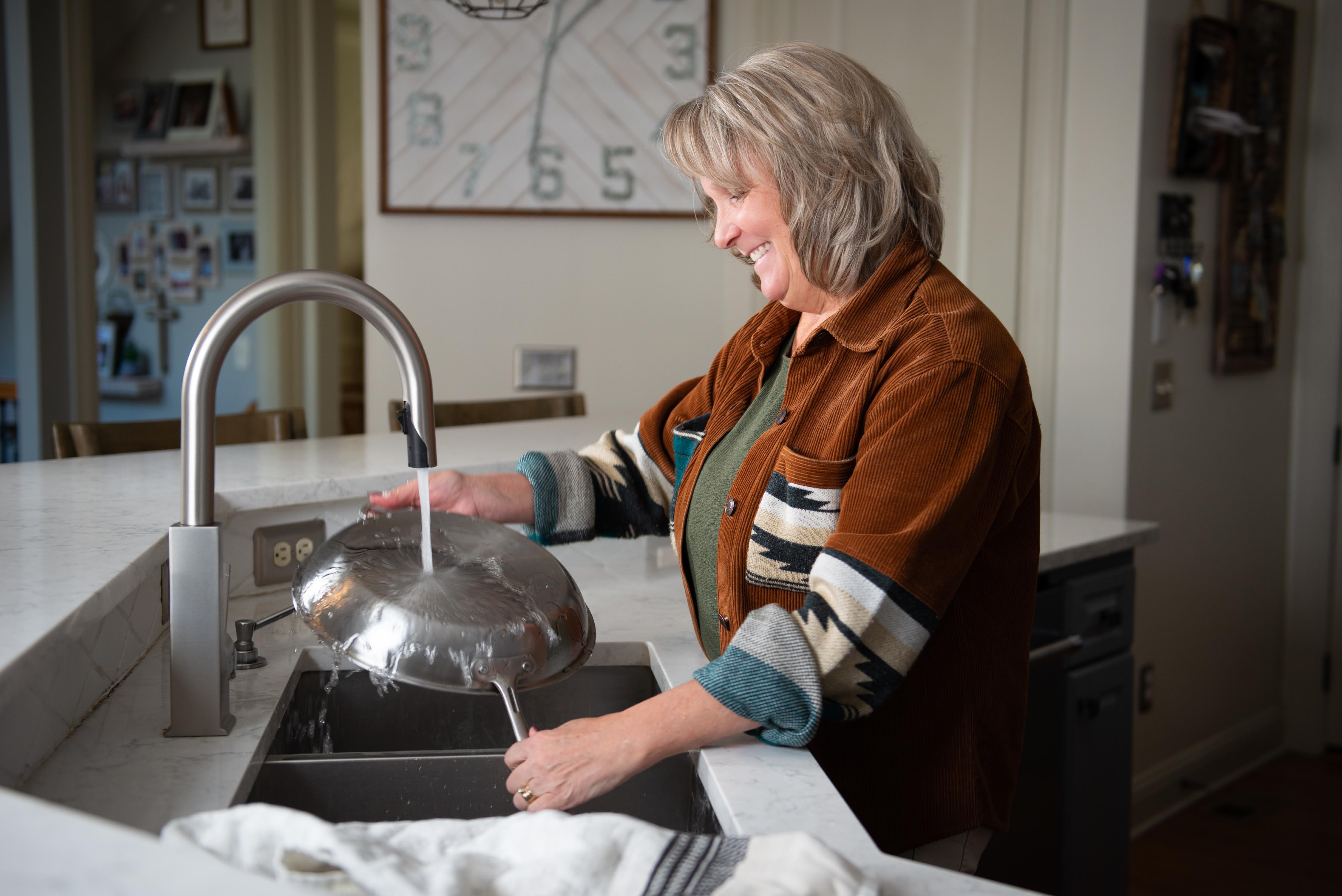
Top 5 Ways to Avoid Water Damage to Your Home
Some plumbing repairs don’t pose a big threat to your home. Running toilets and leaking faucets are more inconveniences than emergencies.
Other plumbing problems, however, can do significant damage. Here are some ways you can reduce the risk that a plumbing issue causes water damage to your home.
1. Know the risk level of your pipes
There’s no such thing as the perfect pipe that lasts forever, so the key here is to know what type you have in your home and how that affects your overall risk level of a future leak.
- Copper piping, for example, is one of the most common due to its reliability and resistance to most forms of corrosion. But copper pipes can also develop pinhole leaks, which can do some damage—sometimes significant damage if undetected for long enough.
- Polybutylene is a known defective pipe that was used in lots of homes built between 1978 and 1995. Some insurance companies won’t even cover homes with polybutylene pipes.
If you have polybutylene in your home, plan on eventually replacing your piping, or at least install an automatic shut-off valve. Knowing what pipes you have in your home will also help if you reach out to a plumber. When you have that information ready, you’re one step closer to finding a solution to your issue.
2. Install an automatic shut-off valve
No matter what type of pipes you have, an automatic shut-off valve gives you more control and peace of mind.
These valves sense high water flow at abnormal times—which can be a sign of a leak—then shut off automatically.
You can also use the valve to shut off your water with an app on your phone. So if you forget to turn off your water before leaving for vacation, you can just turn it off while you’re poolside.
This valve could also save the day at second homes that you don’t frequent as often, where a small leak can go from an inconvenience to a catastrophe.
In addition to the convenience, automatic shut-off valves can also provide a discount for your homeowner’s insurance.
3. Replace old water heaters
When a water heater starts to fail, it will often leak.
The leak might start small, but it could grow into the equivalent of turning on a hose. The problem is you don’t know how quickly it will fail.
The best way to prevent this is to replace old water heaters before they leak. You might have heard that most water heaters last 8-10 years. That’s not really accurate. Based on our experience, the average water heater life span is 12-14 years.
So if your water heater is more than 10 years old, consider replacing it soon to avoid any leaks and damage to your home.
4. Know how to turn off your water
In the case of a big leak that requires immediate attention, the first step is to turn off the water to your home.
To avoid water damage to your home, familiarize yourself with this process so you’re ready in the case of a plumbing emergency. You don’t want to wait for help to arrive while water is pouring into your house.
This article will walk you through the process of turning off your water along with the advantages of a ball valve over a gate valve. So if you don’t want to invest in an automatic shut-off valve yet, upgrading to a ball valve is a more cost effective option that still gives you more control.
5. Clear clogged drains
Clogged drains, especially on main sewer lines, can quickly cause problems that damage your home. So it’s best not to wait around if a drain appears to have issues.
Even for drains that appear fine, preventative maintenance can be worth it for peace of mind. This involves running a camera down the line to see any possible issues.
Running a camera down the line isn’t usually done for home inspections. So if your main line has never been inspected, checking its condition with a camera will help you know if there are possible issues on the horizon, such as roots growing into your line.
Bonus Tip: Check your water pressure
Low water pressure does not usually pose any immediate risk to your home. You will just have reduced functionality for all your faucets and plumbing when you have low water pressure.
High water pressure, however, can produce some problems.
If your water pressure is too high, it can cause wear on your faucets and piping and eventually can cause supply lines to blow, which can quickly flood your home.
Checking your water pressure is an easy process. See this article for an overview of the process and what to do if you do have high water pressure.
Your next step
We provide all the services mentioned above (installing valves, replacing water heaters, running a camera down a line) along with any other plumbing repair for your home.
If you have questions about anything mentioned here, or want to book an appointment, you can reach us at 770.560.1792.





